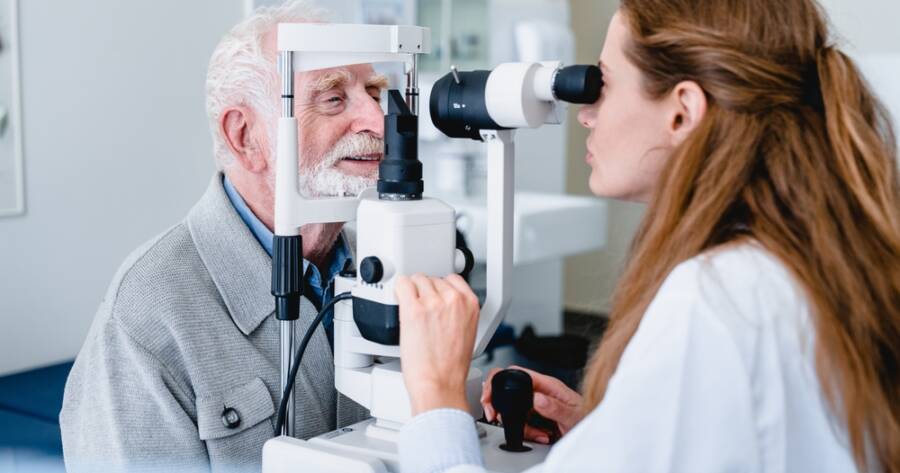Macular degeneration is a leading cause of vision loss, particularly among older adults. It affects the macula, the part of the eye responsible for sharp, central vision. Recognizing the early signs of macular degeneration can make a significant difference in slowing its progression. If left untreated, it can result in severe vision impairment, so understanding what to look for and how to address it is crucial for maintaining eye health.
What is Macular Degeneration?
Macular degeneration is a progressive eye condition that affects the macula, the part of the retina responsible for central vision. It causes damage to the macula’s cells, resulting in blurry or distorted vision.
There are two primary types: dry macular degeneration and wet macular degeneration. Dry macular degeneration is the most common and occurs gradually as the cells in the macula break down.
Wet macular degeneration, although less common, is more severe and involves abnormal blood vessels growing under the retina, which can leak fluid and cause rapid vision loss. This condition primarily affects those over the age of 50 and is a leading cause of vision loss in older adults. Early detection and treatment are crucial to managing symptoms and slowing progression.
Warning Signs of Macular Degeneration
Recognizing the early signs of macular degeneration is vital for early intervention. One of the first signs is blurred or distorted vision, especially when reading or recognizing faces. You may notice straight lines, like those on a grid or in text, appearing wavy or crooked. This phenomenon is known as metamorphopsia.
Another common symptom is a dark or empty area in the center of your vision, making it difficult to focus on objects in your direct line of sight. In advanced stages, colors may appear less vibrant, and the ability to see in low-light conditions diminishes.
Since macular degeneration affects central vision, peripheral vision is usually unaffected, making it difficult to notice in the early stages. If you experience any of these symptoms, it’s important to consult an eye specialist as soon as possible.
What to Do About Macular Degeneration
If you suspect you have macular degeneration, the first step is to see an eye doctor for a comprehensive eye exam. Your doctor may perform several tests, such as a visual acuity test, an Amsler grid test, or optical coherence tomography (OCT) to assess the health of your retina.
For those diagnosed with dry macular degeneration, lifestyle changes such as a healthy diet rich in antioxidants, vitamins, and minerals may help slow progression. There are no cures for dry macular degeneration, but certain treatments, like low-vision aids and lifestyle adjustments, can help manage symptoms.
Wet macular degeneration, however, may be treated with medications injected into the eye or laser therapy to reduce fluid leakage and prevent further damage. Regular monitoring by your healthcare provider is crucial for adjusting treatments as needed.
How to Prevent Macular Degeneration
While there’s no guaranteed way to prevent macular degeneration, adopting certain lifestyle habits may reduce your risk or slow the progression of the condition. A diet rich in leafy greens, omega-3 fatty acids, and antioxidants may support retinal health. Foods like spinach, kale, and fish such as salmon can provide essential nutrients for eye function.
Quitting smoking is another key factor, as smoking is a significant risk factor for macular degeneration. Protecting your eyes from UV light by wearing sunglasses can also help. Regular eye exams are important for detecting early signs of macular degeneration before significant vision loss occurs. If you have a family history of the condition or other risk factors, be sure to discuss these with your eye doctor to create a prevention plan tailored to your needs.
Taking Action for Your Eye Health
Macular degeneration is a serious condition, but early detection and proper management can help protect your vision for years to come. By staying vigilant about your eye health, recognizing the warning signs, and seeking prompt treatment, you can slow the progression of the disease and maintain a good quality of life.
Regular eye exams and a healthy lifestyle are key to preserving your vision, so make sure to consult with your eye care professional for personalized advice and guidance. Your vision is precious—take action now to safeguard it.





